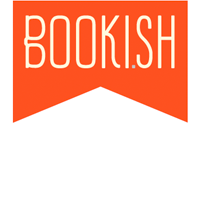 While it’s odd to think of an organization backed by the Penguin, Hachette and Simon & Schuster as a startup, Bookish, the new book-recommendation and -discovery site is essentially that. After two years in development under three CEOs, Bookish is now a reality, a place where users can get recommendations—based on titles or groups of titles they know they already like—and then, importantly, purchase them.
While it’s odd to think of an organization backed by the Penguin, Hachette and Simon & Schuster as a startup, Bookish, the new book-recommendation and -discovery site is essentially that. After two years in development under three CEOs, Bookish is now a reality, a place where users can get recommendations—based on titles or groups of titles they know they already like—and then, importantly, purchase them.
Like the Random House project BookScout, the idea, on one level, is to facilitate discovery across the industry, for the good of the industry. And while users can discover just about any book, the books they can purchase directly from Bookish are not limited to those published by the three companies who footed the bill.
 “In addition to the founding publishers’ books, we also have partnerships in place with 16 other publishers,” says Ardy Khazaei, a veteran of publishing (HarperCollins) and several startups, who is the CEO who brought Bookish across the finish line. Khazaei spoke with Book Business in February, shortly after Bookish’s launch. “If you count publishers like Perseus and IPG, we’re carrying the content of hundreds of publishers, directly for purchase.” All other book pages feature links where users can purchase them from other online destinations.
“In addition to the founding publishers’ books, we also have partnerships in place with 16 other publishers,” says Ardy Khazaei, a veteran of publishing (HarperCollins) and several startups, who is the CEO who brought Bookish across the finish line. Khazaei spoke with Book Business in February, shortly after Bookish’s launch. “If you count publishers like Perseus and IPG, we’re carrying the content of hundreds of publishers, directly for purchase.” All other book pages feature links where users can purchase them from other online destinations.
By pulling in metadata and title information from third parties, and with “Baker & Taylor handling the retail side of this in the background,” Bookish offers about 1.2 million unique titles. “It goes quite a bit beyond just what our partner publishers carry,” says Khazaei.
Bookish is still in its early stages and is, as expected, finding its way, with some enthused users, some cautiously optimistic, and some who expected more. Khazaei hints that Bookish will be, to use the buzzword of the day, iterative. “Without disclosing stuff I can’t disclose,” he says, “we’ve got plans to go beyond what we launched with. This is just the start.”
Khazaei says that the focus of Bookish’s recommendation engine will be more on individual users than on the aggregate tastes of the crowd. For that reason, “We didn’t have a depth of user knowledge at launch, but we architected [Bookish] to gather that insight,” he says. As users tell Bookish what titles they like and what they want to read, “That’s going to start to feed into recommendations and personalize them based on your own activities.”
This approach is different from “collaborative filtering,” which is the theory behind the social recommendations (e.g.: 20 of your friends like this so you might, too) that drive Random House’s new recommendation engine, BookScout. “I’m intrigued by what the Spotify folks did with this,” says Khazaei. “They’re taking a different approach. Up until [recently] it has used the social approach to recommending music, but they came out and said ‘We’re changing this; we’re going to have experts curate this.’ … At least for music, it’s very difficult to rely on social networks, and as the CEO of Spotify said, ‘I found that I love my friends but I don’t necessarily love their music.’”
To that end, Bookish employs a team of expert editors managing “subject channels” who will add richness and a human touch to Bookish’s recommendation process. It also has a partnership with USA Today to bring book recommendations to its site based on the subject matter of specific stories. (An earlier partnership with AOL Huffington Post never materialized.)
While the sales aspect is certainly appealing, what may be even more lucrative for the benefactors of sites like Bookish and services like BookScout is the potentially vast amounts of rich user behavior data they will gather.
“One of the things that any site like this will glean is an understanding of user interests and tastes,” says Khazaei. “We hope to develop a deep understanding of user interests that will help drive success and usage and positive word of mouth—a true virtuous cycle. As to how that’s related to the business, we will be sharing aggregate level information and usage with our partners relating to their books, but not other publishers’ books. Our approach is that if a publisher is helping us, there’s a trade-off there. You have to share some information with them, too, so that it’s mutually beneficial.”
It seems more than a little interesting that in the last month-plus we’ve seen two online properties launch that facilitate discovery of the financiers’ titles as well as those of their competitors. It underscores the growing belief that customer data is the real treasure to be unearthed in today’s marketplace. It seems publishers are doing what they can, strategically, to get that data in their hands.
* This article originally appeared on the Book Business website.
































It has seemed for years that publishers treater bookstores as their customers, rather than the erasers, who were almost regarded as afterthoughts. sites like Bookish are an attempt to ger real reader information, which is probably a good thing.
On the other hand, I’ll probably continue to ger my reading recommendations from truster review sites and friends rather than commercial sites like Bookish. I don’t totally trust them to steer me to that mid-list author that I might like, rather than suggesting to me that book that they hope will be the next big blockbuster,